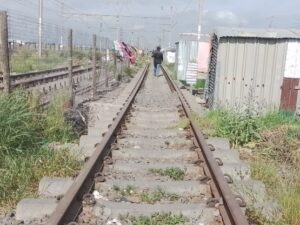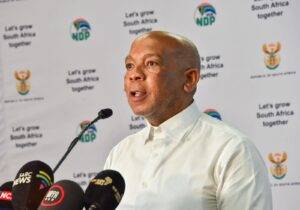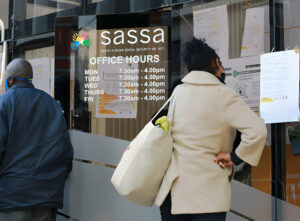South Africa, known for its breathtaking landscapes and vibrant culture, has long been a sought-after destination for travelers worldwide. With a ranking of 27th out of 128 countries in terms of visitor arrivals, the nation’s allure is undeniable. However, the COVID-19 pandemic has left an indelible mark on the tourism industry, affecting not only major players but also the often-overlooked informal traders who form a crucial part of this ecosystem.
Tourism: A Victim of the Pandemic
Between 2000 and 2018, South Africa witnessed a steady increase in tourist arrivals, soaring from 491,439 to nearly 6 million visitors. However, the pandemic reversed this trend, plummeting arrivals to just over 3 million in 2021, from a high of over 10 million in 2019. While there has been some recovery in 2022, with 5.6 million tourists returning, pre-pandemic levels remain a distant goal. This decline has dealt a severe blow to the nation’s economy, as the tourism industry had been a consistent driver of economic growth, contributing 3.7% to the GDP.
Informal Traders: An Often Overlooked Community
Among the hardest-hit by this downturn are South Africa’s informal traders, who have long thrived on the influx of tourists. Tens of thousands of individuals and families depend on tourism for their livelihoods, and the drop in foreign tourism numbers has had a cascading effect on these communities. With a staggering 32.6% unemployment rate and sluggish economic growth, this impact is particularly profound.
Insight from Cape Town
A recent two-year study conducted in Cape Town, one of South Africa’s premier tourist destinations, provides insight into the challenges facing informal traders in the wake of the pandemic. Notably, the study found four key themes: tourist dependency, tourist spending power, a pivot to the local market, and resilience.
- Tourist Dependency: Many traders relied on tourists for up to 95% of their business, and the fall in tourism numbers resulted in a sharp decline in sales.
- Tourist Spending Power: Traders reported that their turnover had not returned to pre-pandemic levels, with some struggling to make a fraction of their previous weekly earnings.
- Link to Local Market: Forced by circumstances, traders had to adapt to local demands, selling essential items like clothing and food, and even parting with personal possessions to survive.
- The Return of Tourists: Traders expressed a firm belief that the return of international tourists is essential for the long-term sustainability of their businesses.
Recommendations for the Way Forward
The study underscores the need for a holistic approach to revitalize South Africa’s tourism sector, emphasizing sustainability over a return to the status quo. The following interventions are proposed:
- Access to Resources and Training: Providing informal traders with the necessary resources and training to adapt to changing market dynamics.
- Supportive Policies: Crafting policies that acknowledge and support the vital contributions of informal traders to the tourism industry.
- Market Access: Facilitating access to markets, potentially through online platforms and partnerships with established businesses, without the burden of excessive bureaucracy.
- Storage Facilities: Offering safe and affordable overnight storage for merchandise to prevent losses and theft.
- Law and Order: Ensuring law and order are maintained, as recent incidents like taxi violence in Cape Town highlighted the importance of a stable environment for both informal trade and tourism.
- Reputation Management: Taking decisive measures to rebuild South Africa’s global reputation, dispelling negative labels such as “dangerous.”
A bottom-up approach is essential to avoid overburdening informal traders with unnecessary red tape. It’s imperative to recognize that these traders are an integral part of South Africa’s vibrant tourism industry and contribute significantly to the nation’s economy.
We extend our gratitude to Vickey de Villiers, whose Master’s dissertation laid the foundation for this article, shedding light on the challenges faced by South Africa’s informal traders during these trying times.














